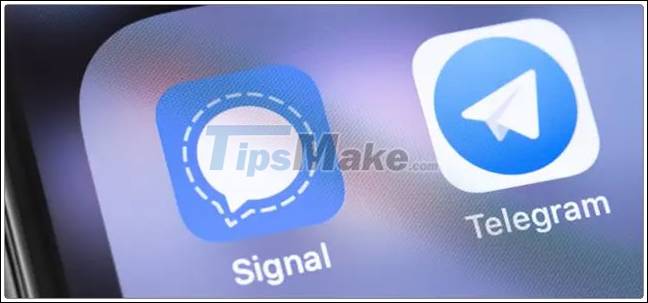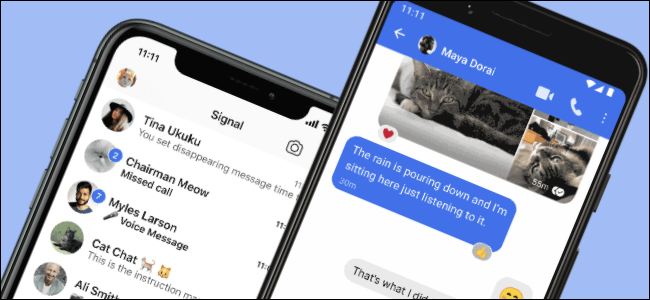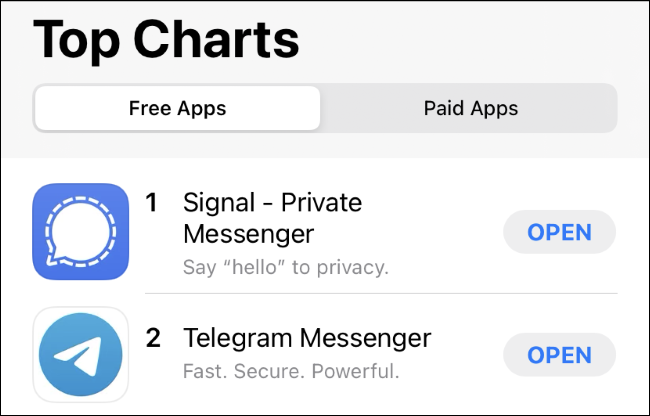Signal and Telegram: Where is the privacy-focused cross-platform chat app better?
Both Signal and Telegram are on the top of the most downloaded apps in app stores. Both of these chat apps promise to bring users more privacy control features than WhatsApp, Facebook Messenger and some other popular messaging software today. But of course there are still a few major differences between the two.

So between Signal and Telegram, which app is more suitable for you? We will find out together shortly.
The common point between Signal and Telegram
Both Signal and Telegram emphasize they are messaging apps that focus on users' privacy and security. Besides, both are not owned by a large tech company. Signal is owned by a non-profit organization, while Telegram comes from a relatively small tech company.
Both Signal and Telegram are cross-platform chat apps that have all the standard features, from sending stickers to sending photos. From file transfer to voice and video call support.
Signal and Telegram are both free, and you only need to sign up for an account with one phone number. Both offer optional desktop apps for you to chat on a Windows PC, Mac, or Linux system. From there it gives you the option to chat on the computer with a dedicated keyboard.

Signal has better security features than Telegram
From the beginning, Signal has been developed towards ensuring absolute security and privacy of users. All conversations and communications in any form on Signal are end-to-end encrypted between devices. Not even the Signal Foundation, which owns Signal, can't even view your messages without your permission.
On the opposite side, Telegram offers optional end-to-end encryption when you initiate a 'Secret Chat'. In Signal, everything is 'a secret chat' - by default. All Telegram messages are encrypted between you and the Telegram server. But in theory, the company behind the Telegram platform can fully view your messages on their servers if you like - unless you enable 'Secret Chat'.
Also, in Telegram you can't create a 'Secret Chat' group. You can only receive end-to-end encryption in a conversation between two people. By contrast, Signal supports encrypted group chats.
All Signal chats are stored only on your device by default. In Telegram, they are stored on Telegram's servers and can be synced between your devices. (You can still use Signal between multiple devices and synchronize messages from one device to another. But you can't sign in to Signal on the web and find all the chats you are doing. on the smartphone there).
Signal is a completely open source platform - both the code for the client and the code for the Signal server can be found on GitHub. The code for Telegram's applications is open source, but Telegram's server software is not open source.
Some security researchers have argued that Signal's encryption protocol is better and more durable than Telegram's MTProto encryption protocol. However, this is still a complex and controversial topic.
Telegram supports some interesting features that Signal doesn't have

While Signal has a clear advantage when it comes to privacy, Telegram offers many handy features that Signal doesn't have.
In Telegram, you can create a group chat with up to 200,000 participants. While the same case for Signal is only 1000 people.
In Telegram, you can transfer files up to 2GB in size. In Signal, you can only transfer files up to 100MB in size.
Telegram offers syncing messages with cloud storage - you can even log in to Telegram on the web and continue your chats extremely conveniently. While on the opposite side, all Signal chats are stored locally on your device.
Telegram allows you to add bots to chats, but it also means that such chats will have less private encryption. On the contrary, Signal does not support bots that can interact with chats.
Overall, the Telegram app also has a cleaner, more intuitive interface, with lots of customizable stickers, animations, and wallpapers for user chats - far more than the newly launched Signal.
Signal vs Telegram: Which platform do you choose?

If you are a person who is particularly concerned with privacy on online messaging platforms, choose Signal - a privacy-oriented app that's somewhat extreme. In addition, Signal, although recently released, is also receiving a lot of attention and positive reviews from the user community.
If you also care about privacy, but at the same time need the useful support features outlined above, Telegram will be the right choice. Furthermore, Telegram's community of users is larger than Signal, at least for now.
Of course, which app you choose to use with depends on which platforms your friends, relatives, colleagues, and others you want to chat with. You can even use the two to talk to different people. Try to experience it!
Ultimately, Signal and Telegram both beat WhatsApp and Facebook Messenger absolutely when it comes to privacy. No apps are associated with Facebook like WhatsApp and Facebook Messenger. Additionally, both Signal and WhatsApp are much more secure than SMS, which allows your mobile carrier to see every message you send and receive.